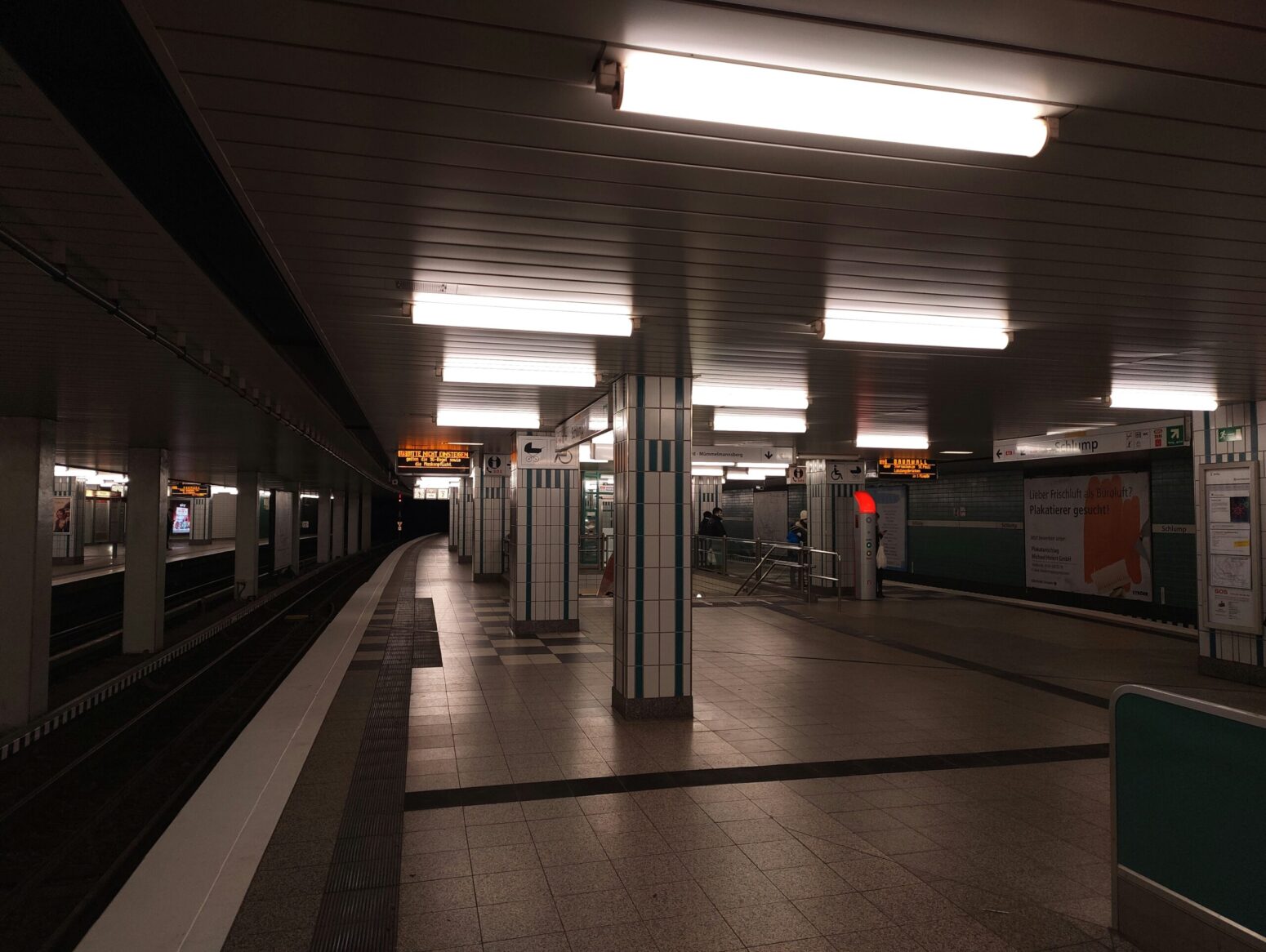Liminal Spaces in Poetry
6 Minutes Read Time

Associate Editor Andy Sia: I recently watched Coherence (2013), a movie which I’d known little about beyond the fact that it features one of my favorite elements in narratives: a constrained setting. Most of the film takes place in a house where eight friends gather for a dinner party, except during intervals when characters wander outside. The film, it turned out, also has one of the best depictions of liminal spaces I have seen on screen. The world outside—a hazy dark punctuated by the diffuse glow of streetlights, and swirling with the amorphous outlines of trees, buildings, people—feels both unreal and alive. This liminal mood would spill into the house itself, no longer a constrained space, but porous and crackling with dangerous possibilities.
The term “liminal space” broadly refers to any kind of transitional space, physical and/or psychological. In terms of physical spaces, a liminal space might be a space that facilitates passage, like an airport, or a space that sits between the outside and inside, like a movie theater. The liminality of spaces also has to do with time and timing: spaces, for example, between uses, like the empty hallways of a school, or spaces that seem obsolete, like a shopping mall. The term gained broader resonance in 2019 when a creepypasta about The Backrooms, a fictional and seemingly never-ending expanse of empty rooms and passageways, went viral. Since then, other media adaptations—video games, video shorts, films—which deliberately leans into a liminal aesthetic have taken off: I remember watching a playthrough of a game that takes place in a complex of swimming pools.
These renditions of liminal spaces in cultural imagination harness the inherent eeriness that seems to come with these sites that straddle the familiar and unfamiliar: What lies around the corner? Who else is there? For the theorist and writer Mark Fisher, eeriness is more specifically a question of agency, or occluded agency: “What kind of agent is acting here? Is there an agency at all?” Is it possible, in another sense, that the space is alive?
As with pop culture, liminal spaces crop up in poetry. I love Kiki Petrosino’s “Nursery,” an example of a poem which embeds liminality into its own poetic architecture. In the poem—a villanelle—the speakers, voiced by the first-person plural we, embark on an adventure inside the fairy house. Unnerving details accrue without coalescing into a clear account. For one, the hosts inside the fairy house “had no faces yet.” I note the quantifier “yet,” which hints at disturbing potentiality. The broader world of the poem is uneasily animate: The oak’s “ankle” leads into the fairy house; tea sits warm inside the speakers’ stomach; the speakers leave behind something of themselves “growing its facets.” The villanelle—herding the speakers toward change slowly but surely—reframes the promise of adventure in the beginning to lamentation at the inevitability of change.
I’m always thinking about perspective, voice, and lyric subjectivity in poetry. Carmen Giménez’s “Photo of a Girl on a Beach” comes to mind as a poem with a novel’s perspective. The speaker of the poem is the girl in said photograph or more broadly, “a figure in memory.” The poem asks us to imagine what an existence inside a photograph—a figure stuck in the folds of memory—might look like. The speaker attests that this is a “hollow” world, where she is “alone” and “paper-doll thin, dreaming.” A liminal existence; an unreality. The poem ends with the voice looking out at her real counterpart, lying on the sand while “the hour took her bit by bit.” There’s a horror that’s layered in this final imagery: a horror attached to the material fact of being alive, distinct from the horror of being inert and unchanging .
Jess Yuan’s “On the Set of Big Brother” offers a broader view of the liminality of technology; instead of the camera of Giménez’s poem, we land in a film set. The title of the poem refers to the reality competition TV show in which contestants, isolated from the outside world, live in specially constructed house where they are continuously surveilled by cameras. Yuan shows the work behind the film set:
[…] Cameramen piercing
into some wet out-turned sac, dye-saturated chamber
held close to its neighbor
by post production. Replacing insulation, breathing heavy
when it starts to get Real.
Crowding to the one-way mirror or cooling vent,
behind the space
called thickness, larger than what it watches
discerningly. Where the magic happens.
Technology becomes a metonymy for the voyeuristic and surveilling gaze, which intervenes in the constructed space in ways that are intimate and violent and, well, Real. The work of the cameramen and film crew—themselves occluded figures—is displaced onto the set itself, such that physical space itself appears live, haunted: “A door, squeezing one room // out of another,” “Every door and its lever // shushing to whisper.” The poem incorporates our own gaze as readers, zooming across the architecture of the set and leveling our gaze amid objects and bodies, as if to suggest we the audience and readers aren’t above this mesh of intimacies and violences. We are in it.
Finally, I think of Alice Notley’s The Descent of Alette, a feminine epic, in which the heroine finds herself in the underworld—likened to a subway system—and must travel deeper underworld to confront the Tyrant, the source of war and pain (excerpts here and here). The book-length poem, presented entirely in a series of quotation marks, critiques the masculinist codes of the epic, enacting a more dreamlike and searching space than a narrative in which “a man who changes everything there is by entering into combat with something.” I love the rhythm the quotation marks enact, a temporal layering. I’m also reminded of wormholes—each quoted phrase or word gesturing a source, referent, or etymology. This is a text that seems to me to sit amid a matrix of possibilities.
I hope that wherever you are on this October day, this brief selection of poems offer you a landing pad! Enter into such uncertain architectures, wander amid the labyrinthine structures, lose something of yourself along the way. If, by chance, you make it out from the other side, did you really? On behalf of The Cincinnati Review team, Happy Halloween!

